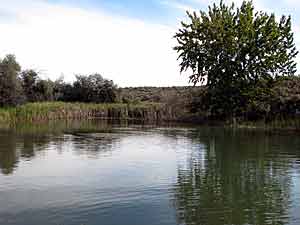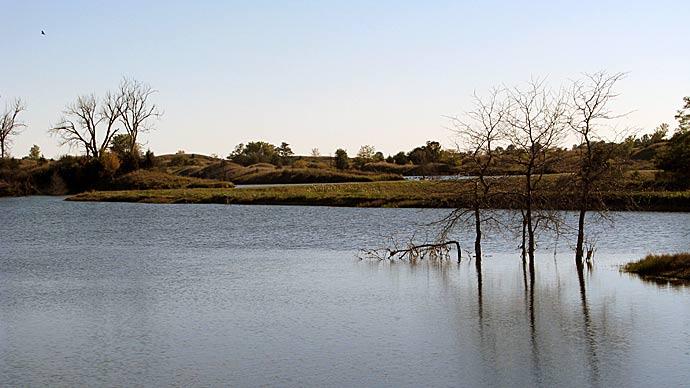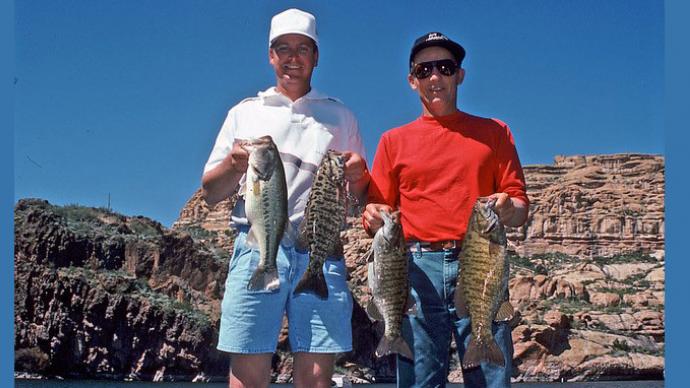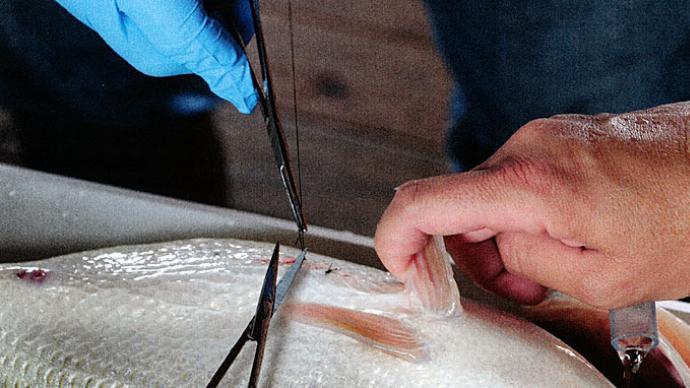
Well, here it is, July and August, the hottest months of the year. "Dogs days of summer," my parents used to say.
How does summer heat affect your mini-pond?
Summer evaporation is highest at this time of year. Typically, expect to lose as much as a quarter to half an inch of water per day to evaporation, especially if your pond is in and parts of the planet with daytime temperatures hovering in the high-90's and humidity somewhere in the 30% range, expect your pond to drop an inch every two to three days.
While that's normal, there are some things to think about. When water evaporates, that's all that escapes. Everything dissolved into that water stays behind and becomes more concentrated. For example, if your calcium hardness was 100 parts per million (ppm) and you lose half your water to evaporation over the summer, expect your calcium hardness to be at least 200 ppm. While that measurement is well within the bounds of "acceptable" levels for pond health, don't be lulled to forget about it.
What's the rub, you ask?
As water evaporates, the living things left behind adjust... that's normal.
But, what happens when you finally get that fall rainstorm that fills your formerly four foot low pond? All those different minerals and metals are diluted... and diluted quickly.
Over the summer, your pH probably changed, gradually. So did everything else dissolved in the water.
What's the solution, you ask next? Check your water chemistry, especially pH, minerals and common metals, along with alkalinity and total hardness. Some state university labs will run tests they call "Standard" analysis for $20ish. That's a bargain, especially if you see some major differences from the last analysis.
How to identify the "problem", you ask?
Look for differences between the last tests you ran and this one. Look at pH, first. If there's more than one point of difference, ask for advice from your fisheries consultant or get with us at Pond Boss headquarters and we'll help find someone who can advise you.
How to solve the "problem", you ask next?
There are several ways to amend a pond's water, as long as you know what the "problem" is. Adding an amendment ... or a base amendment, can help. But, you must know what you need, first.
What else should you watch for in these "dog days"?
You may have decided to finally bite the bullet and buy an aeration system. Your pond is stratified right now, so don't run it full bore, until you have slowly destratified your pond. Be sure to get guidance from the good folks where you buy the system. They'll tell you how to initiate your pond. Inevitably, I get several phone calls this time of year from anxious pond owners who have fish kills. Inevitably, one or two of those calls are from people who bought an aeration system to take care of their pond, but ran it so much that stagnant bottom water mixed with the productive, healthy top water and flat out suffocated their fish ... with love.
If you've fed your fish all spring and into the summer, be aware that the kind of feed can determine effects on your water quality. Grain-based feeds eaten by warmwater game fish such as catfish and bluegill are often converted two to one. In other words, two pounds of feed converts to one pound of fish .... and one pound of fish waste. Your mini-pond's water must process that waste.
Biological activity is at its peak in hot water, but to properly compost fish waste, the water needs air and sunlight. When your pond is stratified, that waste sinks to the bottom and sits there, awaiting assistance. That stuff can collect and build from the bottom up.
Here's what to look for.
Fish stop feeding consistently. That's a signal to you to pay attention. When fish become sick, their first response is to stop eating. If the water quality is deteriorating, fish won't come back to the feed. Next, you might see a few of them coming to the edge of the water. Their gills are burning, and they are trying to escape the deteriorating water quality.
Next?
Fish kill.
What to do? As soon as you observe your fish aren't feeding as they have been, stop feeding. Watch the fish. If their behavior isn't what you perceive to be "normal," make an action plan. That plan will ultimately entail moving the water. Plan to aerate or pump water, quick. The more water you can bring from just a few feet below the surface and expose to the air, the better. Be careful, though. Don't pump from the deepest regions of your pond. That compounds an already difficult problem. Set the pump intake one-third of the way to the bottom and figure out how to break up the water, like a fireman's nozzle does.
Mini-ponds are the easiest ponds on the planet to manage and it all starts with some fundamental knowledge how the water works.
So, be aware the next two months are two of the toughest months of the year. Don't panic, but be aware. Your pond will thank you for it.
Reprinted with permission from Pond Boss Magazine



